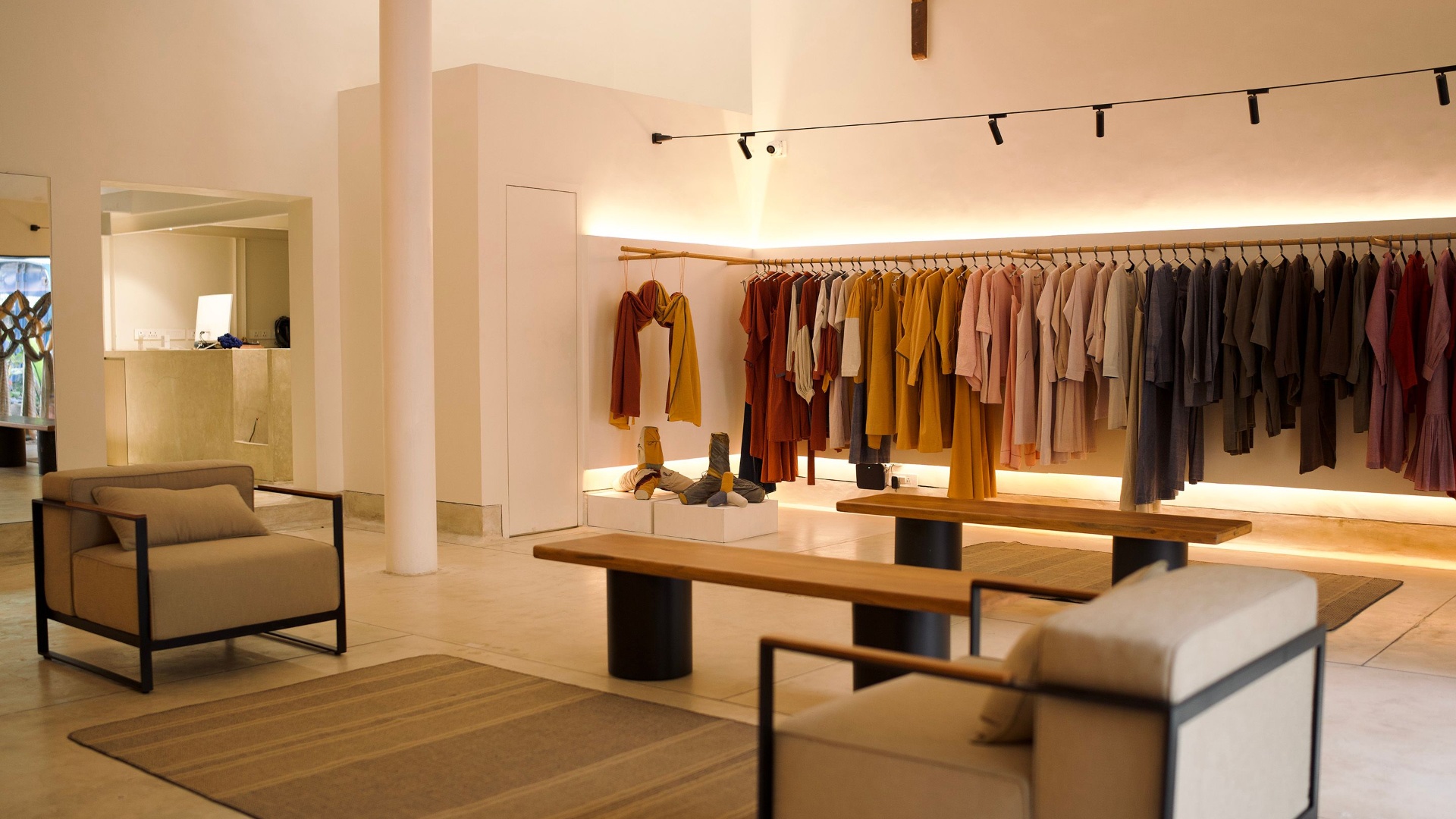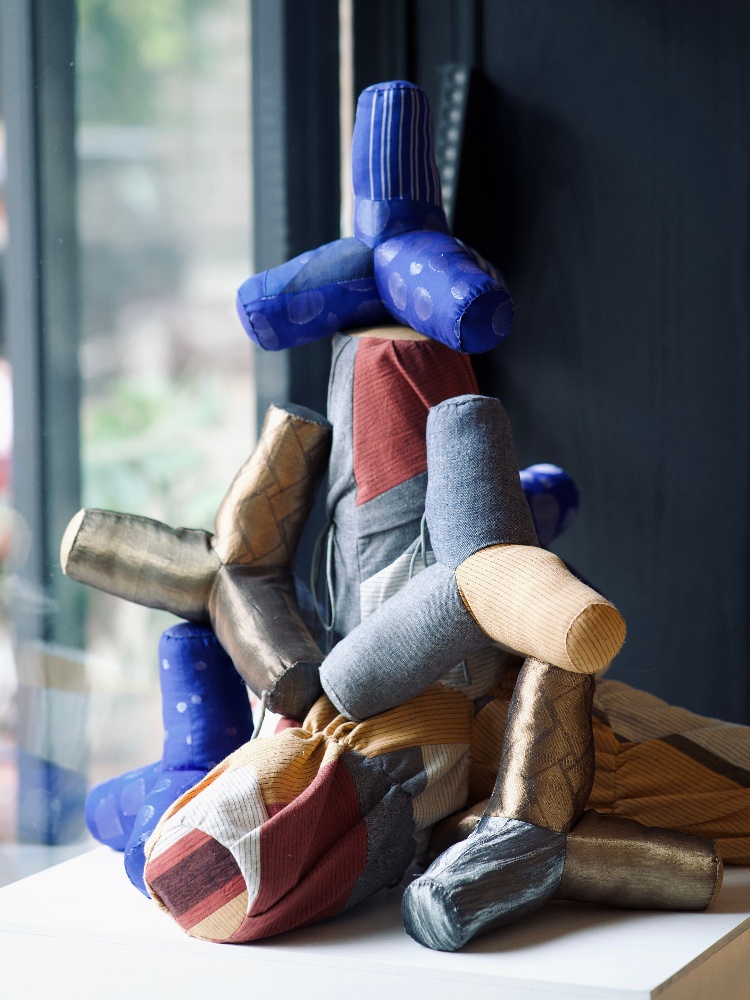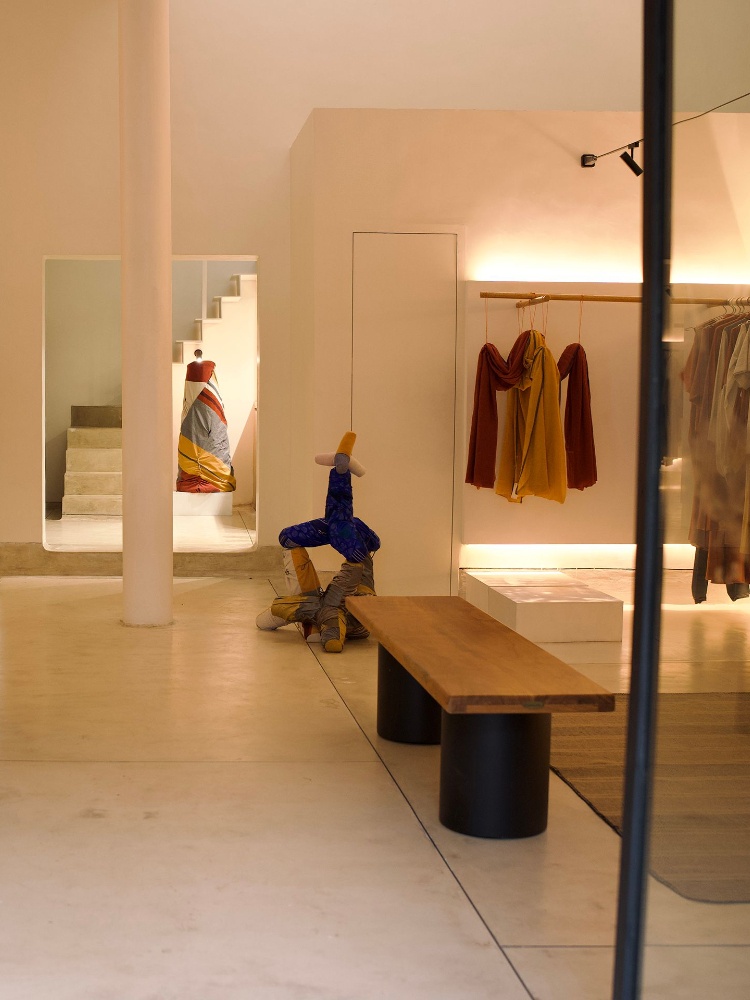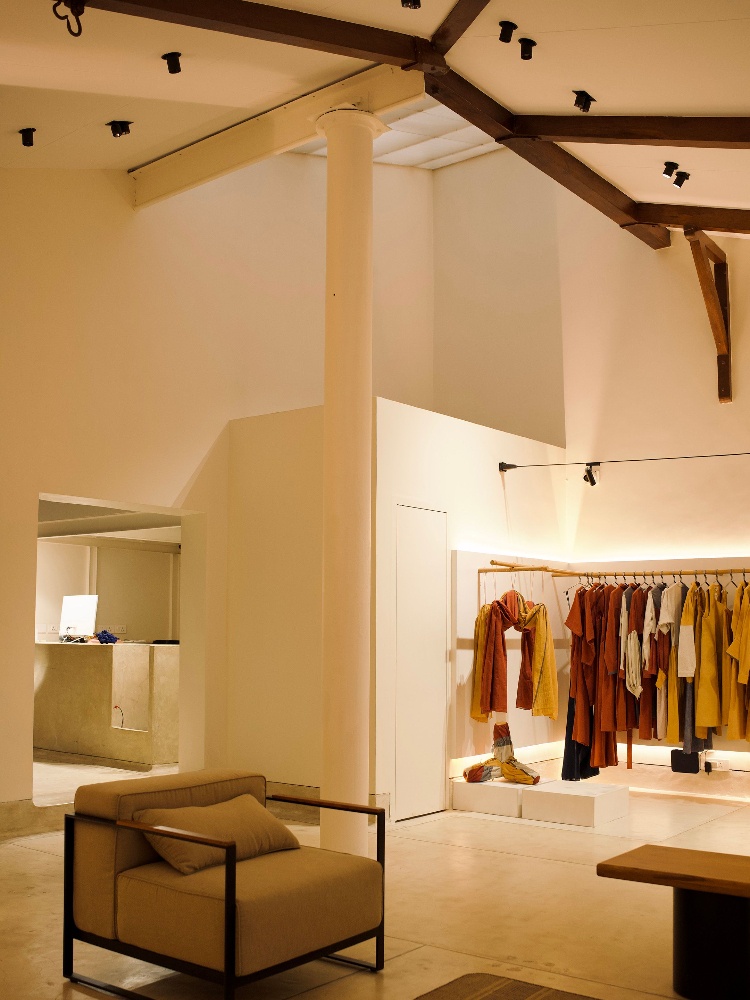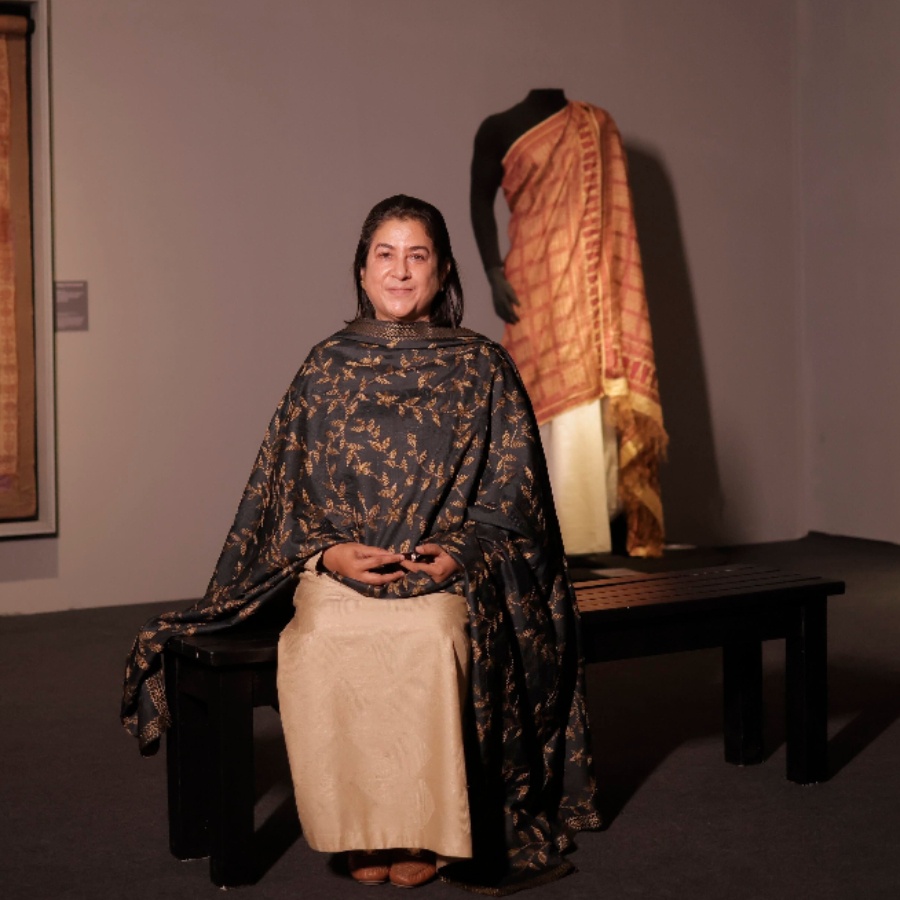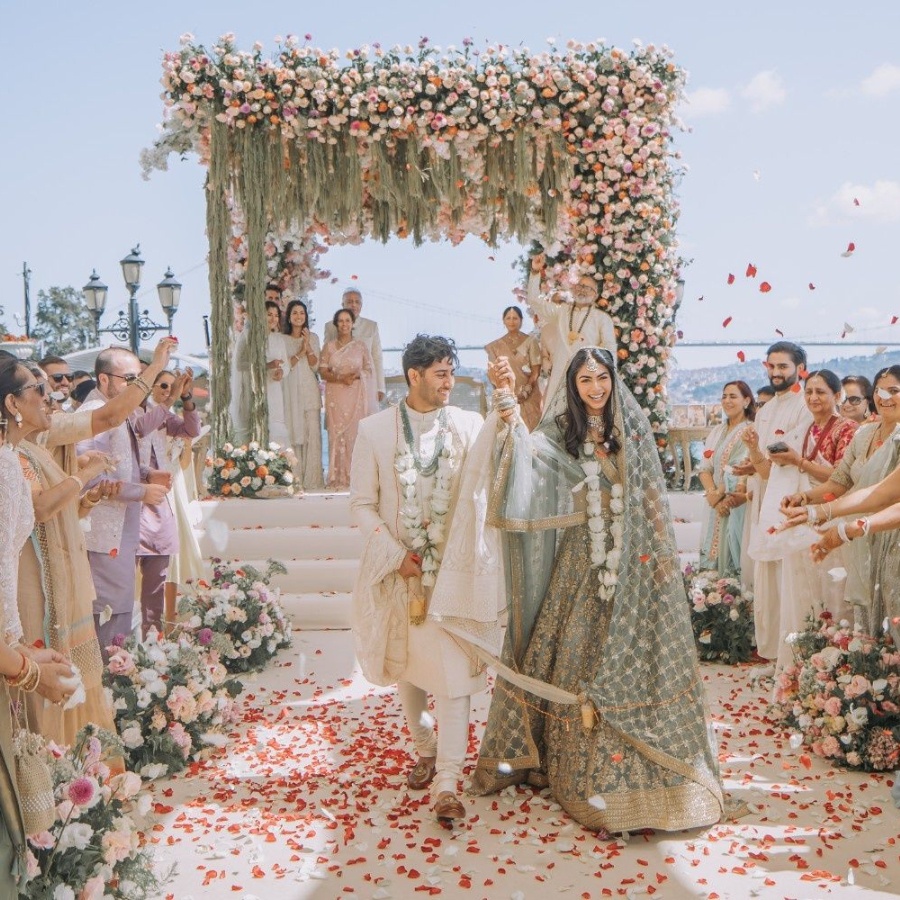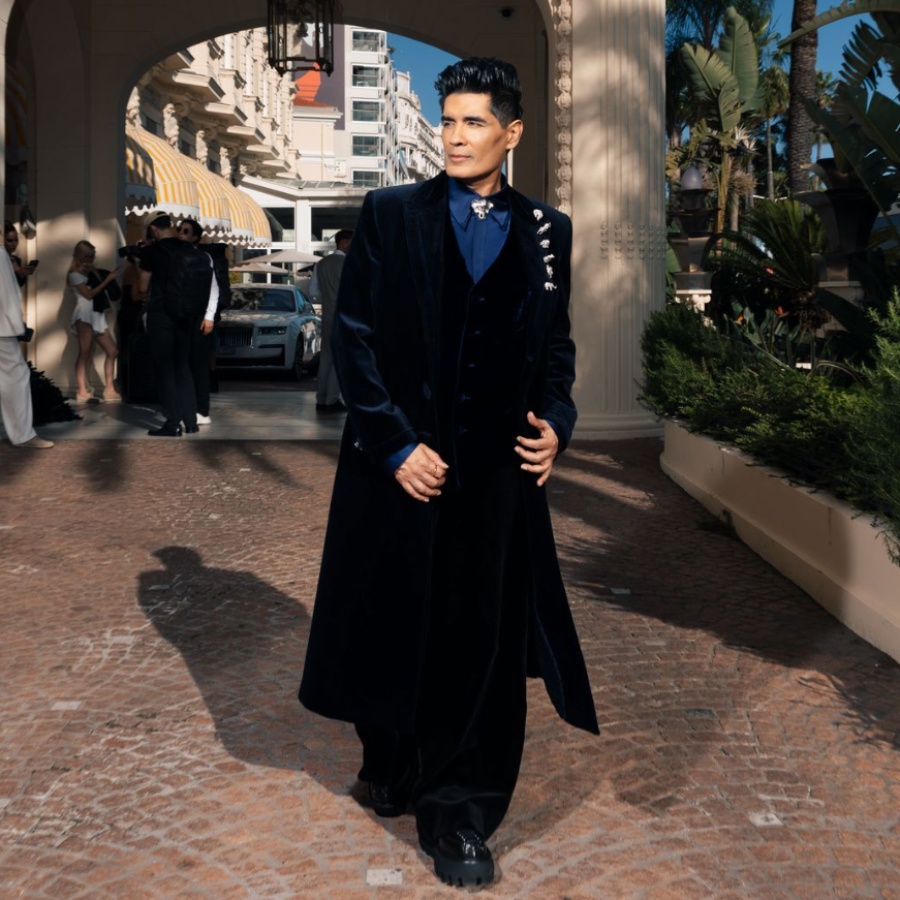You’ve seen those four-legged concrete structures hunkered down along Mumbai’s Marine Drive, looking like they’re ready to start ambling into town like an army of Pillsbury doughboys from Ghostbusters. As you sit dangling your legs off the promenade, wondering what you’d do if your shoe dropped, you would have spotted the crabs scuttling in and out of these tetrapods’ many nooks like brown pebbles come to life, as wave upon wave crashes against the grey mass and fizzles out. The tetrapods, which form this immovable barrier between the all-conquering sea and frangible land, now get a new setting: the store windows of the newly opened Akaaro flagship store in the city’s Ballard Estate.
Gaurav Jai Gupta, the founder of Akaaro, obviously didn’t lift them off the seafront. Instead, the designer enlisted former colleague Ashish Karmali to take over the store’s inaugural window display.
Karmali came up with the idea of tetrapod-like shapes made using fabric waste from Gupta’s collections over the years—an apt homage to the city that the brand will now call home, and also something that ties in with the brand’s philosophy that nothing should go to waste. (For the same reason, Gupta isn’t a fan of grazing tables.) While Karmali’s forte has been larger-than-life avant-garde sculptural shapes made of textile, he decided to take a different approach this time. “This time we wanted to pay homage to the city, the people, and that’s how we came up with the idea for the tetrapod. They interlock… very much like weaving.”
